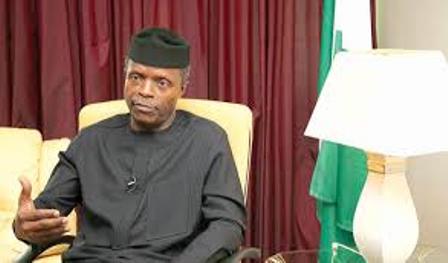• Pledges engagement of more nurses, midwives in revitalized PH
ABUJA – Acting President, Prof Yemi Osinbajo, has commended nurses and midwives over the “increasing” roles they play in managing seekers of health care.
He was specific about nurses and midwives in the sub-Saharan region, saying there had been many health challenges in recent time.
The Acting President made the remark while declaring open the 14th Biennial General Meeting of West African College of Medicine (a specialized agency of the West Africa Health Organization)
The meeting, also the 23rd Scientific Session and 37th Council Meeting of the college, had hundreds of nurses and midwives trained for the purpose of not only providing care in their respective West African countries, but for joint response to emergencies in the region.
Osinbajo, who was represented by Minister of Health, Prof Isaac Adewole, said the roles of nurses and midwives in the in the West-Africa sub-region had to be reviewed because they had been playing increasing roles in health care services.
Speaking on the theme of the event, titled: “Emerging Health Emergencies: Community and Health Workforce Response in the Sub-region,” Osinbajo said the theme “is relevant to major transformations that are taking place in the health sector across the sub-region.”
He said the region had been faced with outbreak of diseases, forced with recurring violence, which he said had displaced people.
“Nurses and midwives are key to providing health care services,” he stated, pledging that Federal Government would ensure more nurses and midwives are engaged in its ongoing revitalization of primary health care across the country.
President, West African College of Nursing, Mr Victor Zoclanclounon, said efforts by nations in the West Africa sub-region to jointly respond to emergencies were yielding results.
He expressed hope that the sub-region had taken good step by raising health professionals who could be promptly mobilized to respond to any emergency in member states. He called for greater relations among member states, while charging the nurses and midwives to exhibit high level of professionalism in their places of work, and while attending to patients.
He urged them to continue to cope with whatever situation of their work place, “we must do all we can to prevent all emerging diseases that are taking away lives.”
Chairman of the occasion, and Chairman, Senate Committee on Health, Sen. Lanre Tejuosho, said “nurses and midwives are frontline workers whose efforts have not been fully appreciated; they are pivotal workforce globally, providing almost 80 percent of care.”
He assured the health providers that Nigeria is committed to achieving universal health coverage.
Keynote speaker at the event, Prof. Uduak Archibong, said there were diverse professionals providing health services, but nurses and midwives’ roles had been growing rapidly.
She said there were three forms of emergencies namely sudden onset such as Ebola outbreak, building collapse; intermediate (as in obesity); and slow burning (as in dementia). She expressed fear that by 2050, 71 percent of people with dementia in the world would come from the Africa region, and that by then, it might be difficult for health workers to manage them.
She said weak health systems in developing countries such as those in West Africa worsens emergencies, and the reason they could not be effectively managed.
Archibong told the nurses and midwives that they play critical roles in health emergency, and that they should be well prepared, and ensure they follow the ethics of their callings.
She reminded the nurses and midwives of their six C’s namely caring, courage, communication, compassion, competence and commitment – all of which she said would help them to be proven professionals on their jobs.
“Uniqueness of emergency and health care is the looking at the situation and standing firm…Managing health emergencies is about working with others. Health care is collaborative, we cannot do it on our own,” she stressed.
She however urged that health emergency become part of school curricula at both undergraduate and post-graduate levels.

